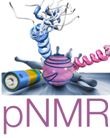‘Personal Skills, conference presentation and Communication’
Thursday 2nd – Friday 3rd July 2015
Prague, Czech Republic
Trainer : Samantha Aspinall, sent by Shinton Consulting www.shintonconsulting.com

Content:
The themes fellows will focus on are:
- Personal effectiveness in the final stages of your project (managing your career, your time and the completion of the project; making the transition to your next career stage)
- Presenting your research with impact (making the most of conferences, confident communication to a range of audiences, presenting your work as a thesis and in the viva)
The programme has been designed for both doctoral (ESR) and postdoctoral (ER) researchers. Even if focus is on the doctoral researchers, being the majority of participants, post- docs will be asked to act as facilitators as a means of providing them with some supervisory skills training.
These two themes will be blended over the two days by linking the proposed topics as follows:
Day 1
Career vision
- •Where do I need to be by the end of the project? A summary of the principal career destinations that follow a PhD and post-doctoral research, followed by a structured reflection for each researcher to consider which career paths appeal.
- •What should my CV look like for the transition to my next position – this activity sets up the rest of the two days as each sub topic will relate to the overarching vision of a final CV
Building a reputation and profile
- • Conference skills – using conferences effectively to build awareness of you and your work, building connections with future employers or potential collaborators; a discussion about cultural differences and how these can affect networking
- • Presentation skills – rather than revisiting presentation skills which some researchers will have had access to in home institutions, this section will focus on how to have an impact with an audience and cover topics like addressing assumptions, managing questions and building trust.
- • Public engagement and media engagement – this session will look at the basic principles of managing communication with the media and include an activity designed to build confidence when discussing research with journalists and non-specialist audiences, to help the research promote themselves and their ideas to a wider range of stakeholders
In the evening, students will be asked to do a little homework by asking academic staff for examples of good practice on a topic which will be selected by the students. This will be gathered through informal discussion and will be a “light touch” activity.
Day 2
Professional approaches
- • Managing priorities – this session combines stress management and time management to present the researchers with a range of strategies to ensure they make best use of their energy and the time left in the network. It should promote better decision making and a clearer focus on finishing the project and moving on. Email management will be covered.
- • Running effective meetings – many decisions are taken in meetings so this short session will look at how to ensure that meetings are structured effectively and that the researchers improve their skills in setting agendas, chairing meetings and ensuring actions are documented and assigned.
- • Assertiveness – academia can be a culture in which ideas and people are challenged robustly. This session will look at how to defend your position with assertive language and will include a short exercise to practice using these skills in recognisable scenarios.
Making the transition
- • Thesis writing – within the time constraints of this programme, this will be a short session outlining features of well written and structured theses. We would also like to include one or two academic supervisors at this point to share their perspectives on what makes a good thesis and any advice they have for researchers. Post-doctoral staff will take on a facilitation role in these sessions sharing their experiences and offering advice
- • What to expect from the viva – given the different viva models that are used across Europe, this will be another brief session with input from academic staff on the key features they look for when acting as examiners. The postdoctoral staff will share their perspectives through discussions.
- • Marketing yourself effectively – this final session will bring together the various skills, achievements and experience that have been discussed over the two days and present a range of model CVs for participants to consider. There will be discussions about the skills profiles required by different employers and how to ensure that the CV is tailored to each role and employer. Finally, a short mock interview panel will take place with students interviewing each other and (if they are willing) some of the academic staff to identify good practice in interview skills.
Program
| Thursday 2nd July | |
| 0900 | Introduction and overview of two days, individual objective setting |
| 0900 | Career visions – career options and visualising your CV |
| 1100 | break |
| 1130 | Conference skills |
| 1230 | Lunch |
| 1330 | Presentation skills |
| 1500 | break |
| 1530 | Public and Media engagement |
| 1700 | Communication activity and closing comments |
| 1730 | end of day 1 |
| Friday 3rd July | |
| 0900 | Time and Priority management |
| 1030 | break |
| 1100 | Effective meetings |
| 1130 | Assertiveness |
| 1230 | Lunch |
| 1330 | Thesis writing |
| 1415 | Viva |
| 1445 | Marketing yourself effectively |
| 11545 | Closing comments and key learning points |
| 1600 | end of the day |
Accomodation
Participants will be loged at Hotel EA Downtown, Žitná 1573/53, 110 00 Praha 1, Czech Republic.
Lunches are also included.
